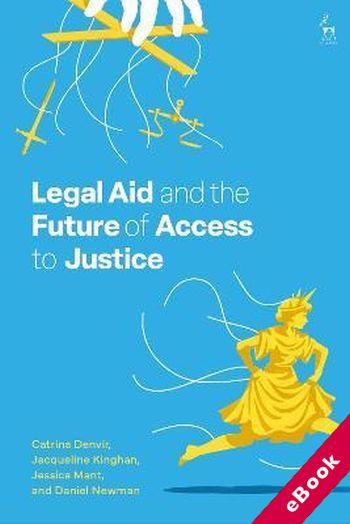
The device(s) you use to access the eBook content must be authorized with an Adobe ID before you download the product otherwise it will fail to register correctly.
For further information see https://www.wildy.com/ebook-formats
Once the order is confirmed an automated e-mail will be sent to you to allow you to download the eBook.
All eBooks are supplied firm sale and cannot be returned. If you believe there is a fault with your eBook then contact us on ebooks@wildy.com and we will help in resolving the issue. This does not affect your statutory rights.
This book provides a snapshot of the state of contemporary access to justice in England and Wales.
Legal aid lawyers provide a critical function in supporting individuals to address a range of problems. These are problems that commonly intersect with issues of social justice, including crime, homelessness, domestic violence, family breakdown, and educational exclusion. The past few decades have seen a clear retreat from the tenets of the welfare state, including, as part of this, reduced availability of legal aid.
Emerging following World War II, legal aid was a critical component in maintaining open access to the courts, safeguarding the rule of law, and supporting individuals to vindicate their rights. However, amidst wide-scale austerity the sustainability of legal aid is under threat. The book examines the impact of austerity and related policies on those at the coalface. It documents the current state of the profession and the social and economic factors that make working in the profession harder than ever before.
Through data collected via the Legal Aid Census 2021 and Legal Aid Student Survey 2021, the book is underpinned by the accounts of over 1000 current and former legal aid lawyers, as well as students considering and pursuing careers in legal aid. These accounts offer a detailed demography and insight into the financial, cultural, and other pressures forcing lawyers to give up publicly funded work. The book combines a mixture of quantitative and qualitative analysis, allowing readers a broad appreciation of trends in the legal aid profession.
The book will equip readers with a thorough knowledge of legal aid lawyers in England and Wales, and stimulate debate as to the fate of access to justice and legal aid in the future.